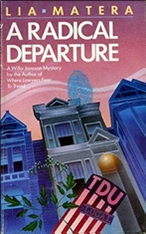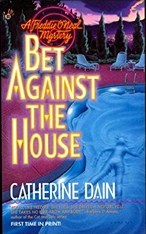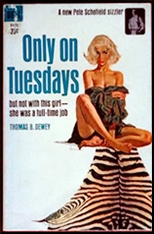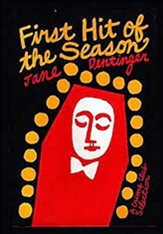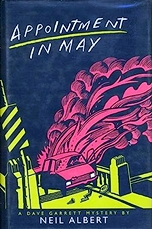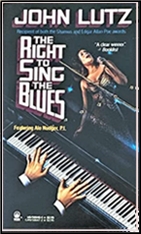Mon 21 Aug 2023
One Shot Private Eyes: A List.
Posted by Steve under Bibliographies, Lists & Checklists[22] Comments
Even though Kevin Burton Smith says that I assisted him in putting this list of one-and-done PI novels together, it must have been done a while ago, since I don’t remember doing so. I just came across it again this afternoon while scouting around for something else, as one does while wasting Googling away an hour or so online.
As far as I know for sure, I’ve read only seven of these. What about you? Everyone reading this has read the first three, right? Of the others, which ones have you read that you can recommend? Have any suggestions as to good ones Kevin may have missed?
Here’s the link: https://thrillingdetective.com/2020/02/13/one-and-done/ Do take a look. Lots of cover images to go with it.
Sam Spade in The Maltese Falcon by Dashiell Hammett (1930)*
Ben Jardinn in Death in a Bowl by Raoul Whitfield (1931)
Karl Craven in Solomon’s Vineyard by Jonathan Latimer (1941)
John J. Shannon in The Private Eye by Cleve F. Adams (1942)
Walter James in Deadly Weapon by Wade Miller (1946)
Steve Lawson in Hard and Fast by U.S. Andersen (1956)
Murray Kirk in The Eighth Circle by Stanley Ellin (1958)
Max Raven in Cain’s Woman by O.G. Benson (1960)
Neal Fargo in Interface by Joe Gores (1974)
The Eye in The Eye by Marc Behm (1980)
Cody in Texas Wind by James Reasoner (1980)
Ralph Poteet in Peeper by Loren Estleman (1989)
Bernardo Thomas in Tropical Murder by Louis Williams
Fritz Brown in Brown’s Requiem by James Ellroy (1981)
“Peekaboo†Frankie Fagan in Bohemian Heart by James Dalessandro (1993)
Ernest DeWalt in An Ocasional Hell by Randall Silvis (1993)
Reno Sloan in The Asylum by John Edward Ames (1994)
George Webb in The Light of Day by Graham Swift (2003)
